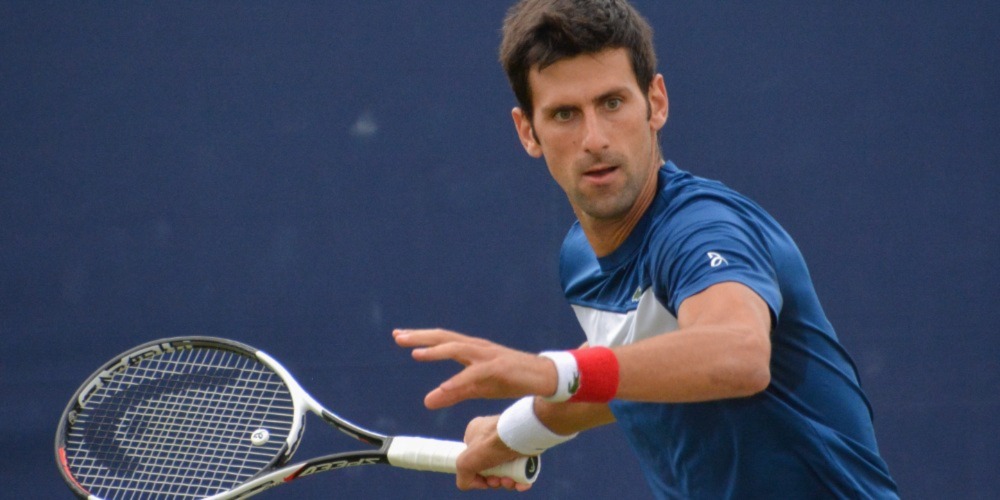Retired Tennis Matches Explained 2025
Posted: March 30, 2025
Updated: March 30, 2025
-
Why Do Players "Retire" During Matches?
-
Notable Cases of "Retirement" in Tennis History
-
Retired Tennis Matches Explained in 2025

Tennis is a sport of endurance, skill, and strategy, but it also comes with its share of unpredictability. One such unpredictable event is a “retired match,” where a player is unable to complete a match due to injury, illness, or other circumstances. This article will explore the concept of retired tennis matches explained in detail, shedding light on their causes, impact, and famous cases in tennis history.
What Does It Mean When a Player Retires Mid-Match?
In tennis, a retired match occurs when a player withdraws after the match has already begun. This is different from forfeiting before the match starts. The reasons for retirement are often physical—injuries, muscle cramps, or illnesses. However, they can also be psychological or strategic. For example, if continuing the match risks further injury that could jeopardize future tournaments, players may choose to retire.
Historically, retired matches were rare occurrences. Before 1990, fewer than 1.5% of professional matches ended in retirement. However, this figure has significantly increased in recent decades, with retirements now exceeding 3% of matches annually. The rise can be attributed to factors such as the increasing physical demands of modern tennis and the grueling tournament schedules players face year-round.
Retired tennis matches explained through statistics reveal interesting trends. For instance, retirements are more common in tournaments played on hard courts due to their impact on players’ joints and muscles. Additionally, Grand Slam events tend to see fewer retirements compared to smaller tournaments because players are more motivated to push through injuries in these prestigious settings.
Why Do Players Retire During Matches?
The reasons behind mid-match retirements vary widely but often go down to three main categories: physical strain, strategic decisions, and unforeseen circumstances. Physical strain is the most common cause of retirement. Tennis is an intensely physical sport that requires players to sprint, lunge, and hit powerful shots repeatedly over long periods. Injuries like muscle tears or joint pain can make it impossible for players to continue safely. For example, Novak Djokovic has retired mid-match at Grand Slam events seven times due to injuries like muscle tears.
Strategic retirements occur when players decide that continuing a match is not worth the potential long-term consequences. For instance, Caroline Wozniacki once retired while leading 7-5, 5-0 because she knew her injury would prevent her from competing in subsequent rounds. Unforeseen circumstances can also lead to retirements. These might include sudden illness or external factors like extreme weather conditions that exacerbate existing health issues. Regardless of the cause, retired tennis matches explained through these lenses highlight the delicate balance players must maintain between their immediate performance and long-term career health. Learn about other Most Shocking Tennis Retirements from our article!
Notable Cases in Tennis History
Some retirements have left lasting impressions on fans and shaped the careers of both retiring players and their opponents. One famous example is Rafael Nadal’s retirement during his first-ever meeting with Novak Djokovic at Roland Garros in 2006 due to injury. This marked the beginning of one of tennis’s greatest rivalries. Similarly, Kei Nishikori’s retirement while leading Rafael Nadal in the Madrid Open final was a heartbreaker for fans who were witnessing an incredible performance before injury forced him out. These moments remind us that even at the highest level of competition, athletes are human and subject to limitations beyond their control.

Retired tennis matches explained through these high-profile examples also underscore how they can impact not just individual careers but also tournament outcomes and fan experiences. For instance, when Benjamin Becker defeated Andre Agassi in his final professional match at the 2006 U.S. Open after Agassi struggled with back pain throughout the tournament, it marked an emotional end to one of tennis’s most storied careers. Of course, for bettors in online sportsbooks in the UK these cases can cause a lot of risk. Therefore, you should always be prepared and informed about the upcoming events and states of the sportsmen.
The Emotional Toll of Retired Matches
Retiring mid-match is not just physically taxing. It can also be emotionally devastating for players who have invested years into their craft. For many athletes, retiring during a match feels like letting down not only themselves but also their fans and teams. Danielle Collins expressed this sentiment when she announced her retirement shortly after losing at the Australian Open despite being in excellent form. On the flip side, retired tennis matches explained from an opponent’s perspective reveal mixed emotions as well. While advancing due to an opponent’s retirement might seem like an easy win on paper, many players prefer earning their victories outright rather than benefiting from another’s misfortune.
The Future of Retired Matches in Tennis
As tennis continues to evolve with faster-paced games and more physically demanding styles of play, it’s likely that retirements will remain a part of the sport. However, advancements in sports medicine and fitness training may help reduce their frequency over time by better preparing athletes for the rigors of competition. Moreover, retired tennis matches explained through technological innovations suggest new possibilities for prevention and management. Wearable devices that monitor players’ physical conditions in real-time could alert them to potential issues before they escalate into injuries requiring retirement.
In conclusion, while retired matches are often seen as unfortunate interruptions in professional tennis, they are also reminders of the resilience and vulnerability that make athletes relatable to fans worldwide. By understanding the causes and implications of these events more deeply, we can appreciate not just the triumphs but also the challenges that define this beloved sport.
Visit bet365 Sportsbooks to check all the lines and odds for tennis and more!











